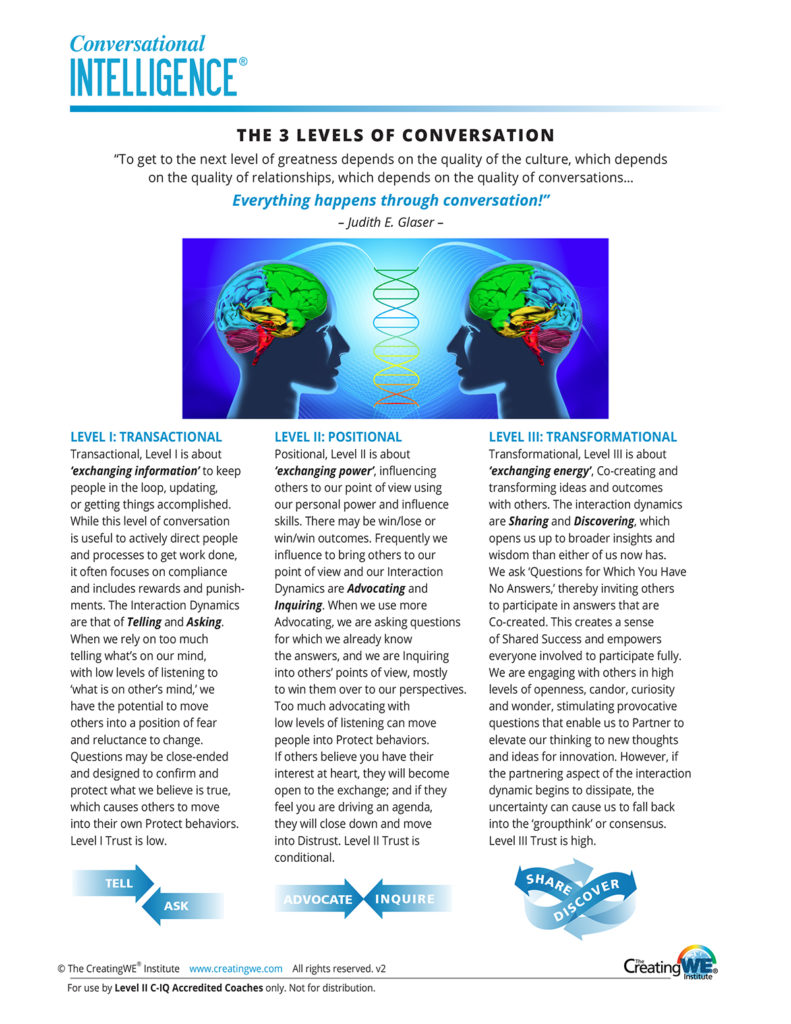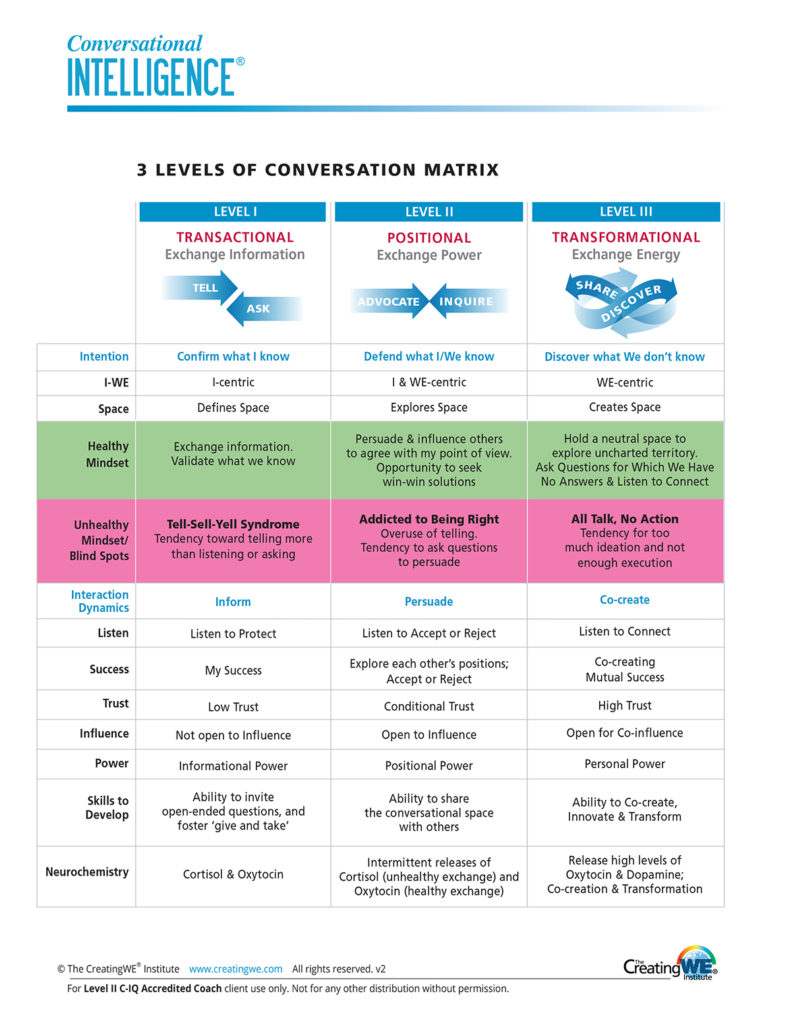Conversational Intelligence®
Master the different Levels of your conversations to remove ambiguity, manage emotions, and get things done with minimal friction.
Join us as we use Judith E. Glaser’s life work surrounding Conversational Intelligence®, embodied now in the CreatingWE® Institute’s brain science to understand how we can co-regulate our conversations to have better outcomes in all of our relationships. Our abilities to up-regulate or down-regulate our conversations especially during stressful times may have more to do with neurochemistry than it has to do with the words we choose, the tones we take, and the body language we portray inside every conversation. But tones we take and body language – together – tell the world what we’re thinking inside ourselves even if we are paying careful attention to the words we use in conversation.
We help you understand the significance of neural transmitter chemicals inside everyday discussions that can turn toxic. What we give – and what we take – from our discussions can become cyclical and worrisome because of our histories with each other. But they can also become incredibly positive and powerful once we understand the three levels of conversations.
Inside C-IQ, you’ll learn how to deconstruct conversations after they happen to understand the meanings inside our relationships, as well as your fear factors that may inhibit relationship-building.
You’ll also learn how to repair relationships by transforming your conversations, while at the same time you are co-creating solutions with another person or an entire team. Trust – huge amounts of Trust – are the outcomes of learning Conversational Intelligence®!
Harnessing Trust built inside Conversational Intelligence® gives teams and leaders new ways to move forward, where everyone is valued, and Co-Creation and Co-Regulation are by-products of a well-working and respected culture.
Margaret Ricci is a Level II C-IQ Accredited Coach, authorized to teach Conversational Intelligence by the CreatingWE® Institute. For more information on the CreatingWE® Institute’s work surrounding Conversational Intelligence, click here.




